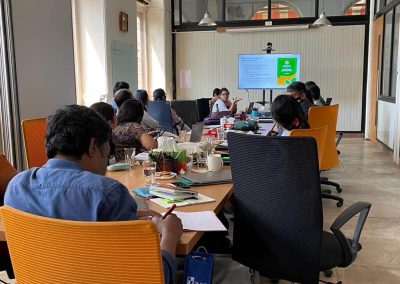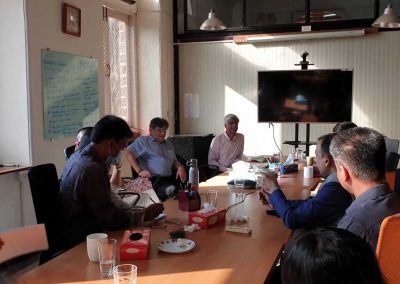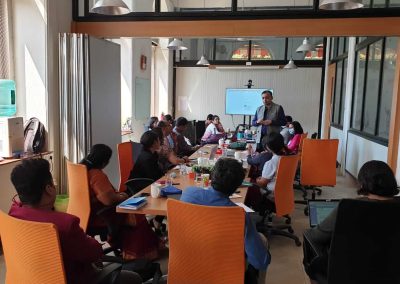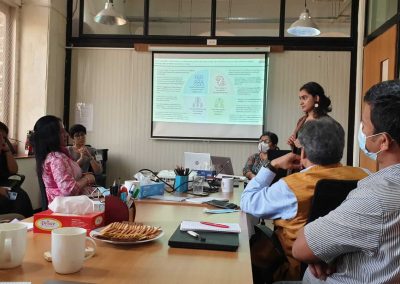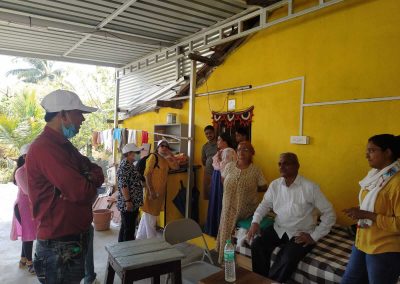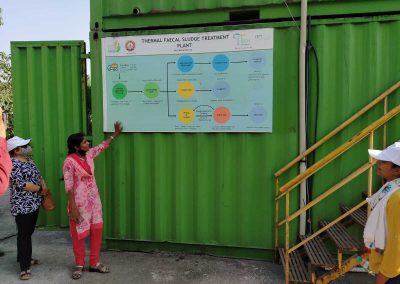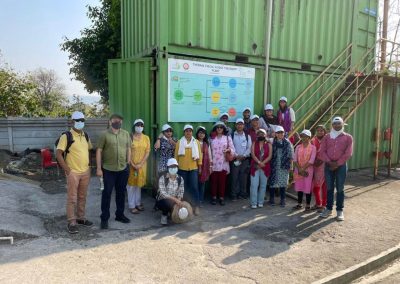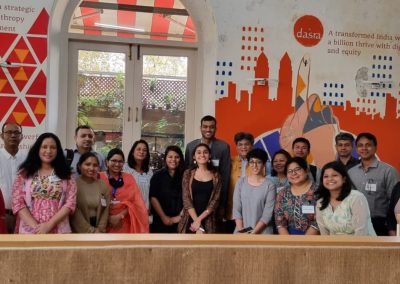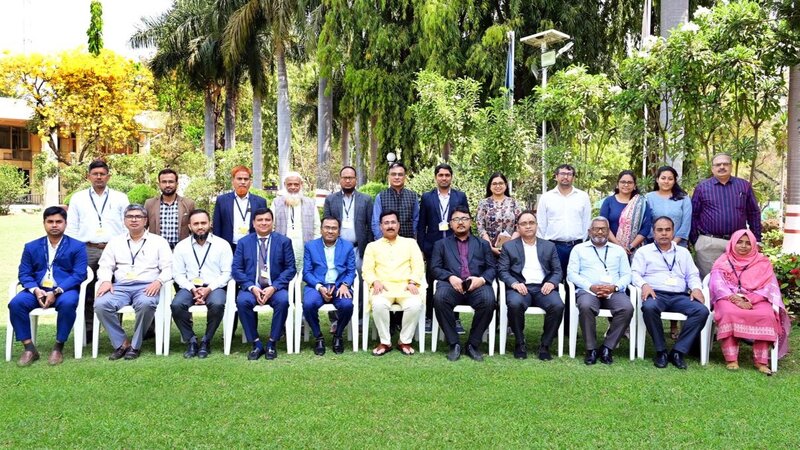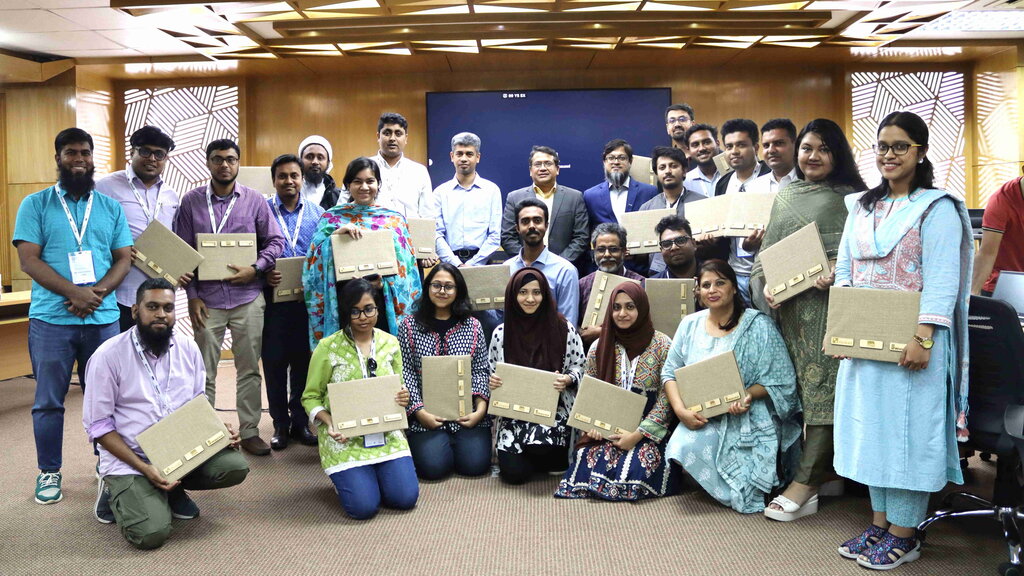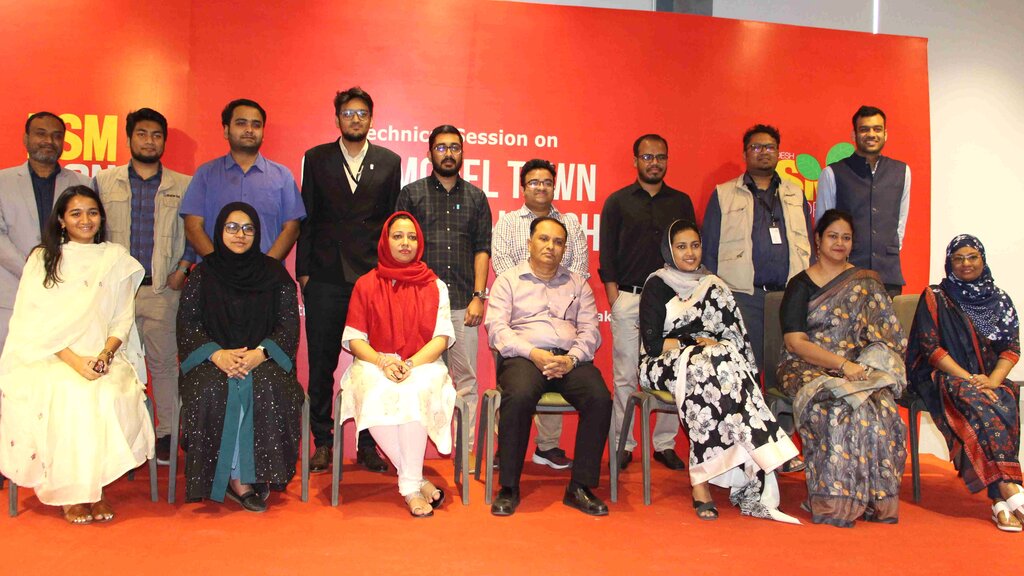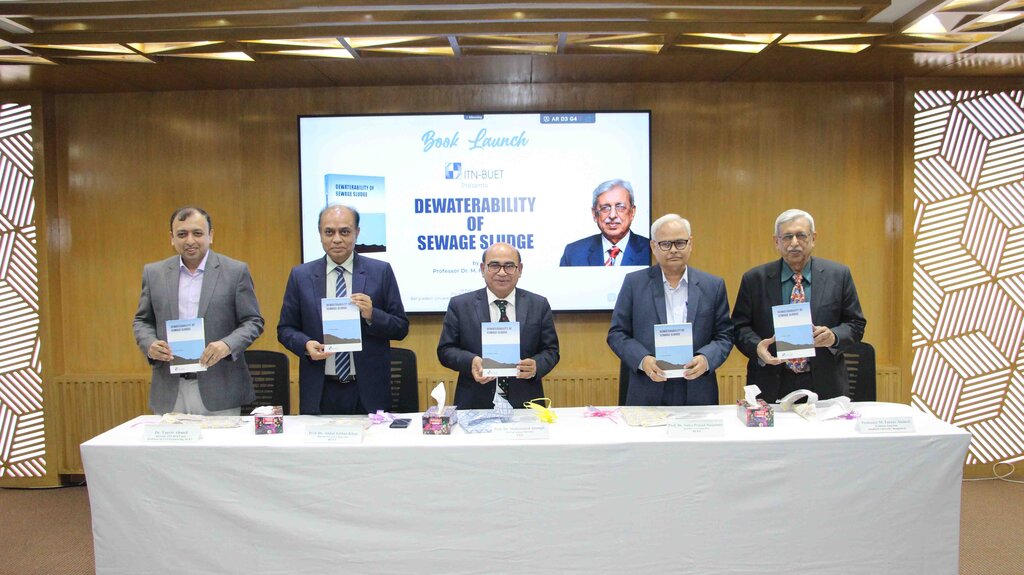Reinforcing the regional collaboration, upscaling CB initiatives, amplifying the learning platform to streamline the effect and showcasing good practices are key elements for mainstreaming the CWIS narratives in the South Asian region- identified in a workshop in Mumbai, India.
Delegates from Bangladesh and Nepal participated in the ‘South Asia Partners – Learning Workshop’, held from March 29 to April 01, 2022, and organized by Dasra, a philanthropic foundation in India. The objectives of the exchange trip were to understand the institutional strengthening and working modalities of the Alliance, learn best practices and models from the CWIS partners in India, understand the capacity-building efforts, and create opportunities for future collaboration.
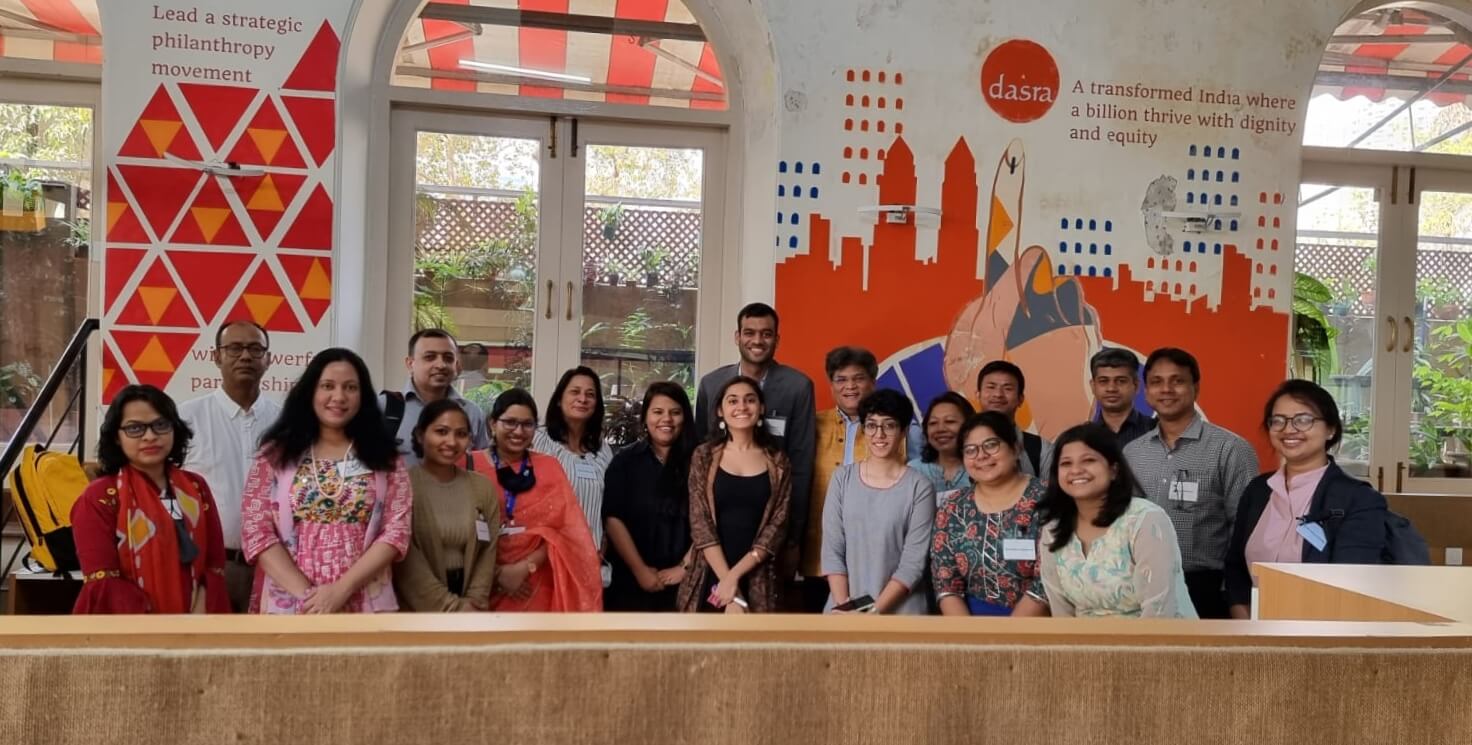
The NFSSM Alliance is recognized as the collaborative body that drives forward the fecal sludge and septage management in India. The first-day session included discussions on forming the National Faecal Sludge and Septage Management (NFSSM) Alliance, the work undertaken by the Alliance, and the role of Dasra as the Secretariat. Ms. Diksha Nawany, Ms. Drishti Basi, Ms. Parnasha Banerjee and Mr. Dhruv Mitter from Dasra presented the programmatic focus on Alliance and Secretariat management mechanisms to strengthen governance and institutional structures towards the achievement of Alliance’s vision and outcomes.
Indian Institute of Human Settlements (IIHS), Administrative Staff College of India (ASCI), and Center for Water and Sanitation (CWAS) presented the cases of Trichy, Warangal, and Wai city in achieving citywide inclusive sanitation agenda on the second day. Mr. Niladri Chakraborti and Ms. Sugantha Priscilla from IIHS, Prof. V Srinivas Chary from ASCI and Ms. Arwa Bharmal and Ms. Aditi Dwivedi from CWAS gave the presentations. In addition, representatives from ASCI and CWAS were connected online to share their experiences of working with these cities. At the end of day two, Professor Dr. Tanvir Ahmed and Ms. Fariha Rahman from ITN-BUET, Bangladesh and Mr. Ashkumar Khaitu from ENPHO, Nepal, gave brief ideas about the sectoral efforts of the respected countries toward meeting inclusive sanitation objectives, agenda and priorities in terms of scaling and institutionalizing CWIS principles in South Asia.
Mr. Alkesh Wadhwani, Director, Poverty Alleviation, India Office and Dr. Roshan Shrestha, Deputy Director, Global Growth and Opportunity-Water, Sanitation, & Hygiene, Bill & Melinda Gates Foundation, were present in the meeting. Mr. Alkesh admired the collaborative mindset of the working organizations in Bangladesh, Nepal and India. Dr. Roshan expected that the visit would facilitate viable partnerships among the organizations working in these three countries. There are a lot of good examples in the South Asian region that need to be promoted, opined Dr. Roshan. He also urged the participants to work collaboratively to create a positive impact in the sector.
The focus of the third-day session was to understand the government’s support and management modalities at the national and state level, especially on capacity-building, policy advocacy, appropriate treatment technologies, evidence-based awareness-raising, etc. On behalf of the National Institute of Urban Affairs (NIUA) and ASCI, Mr. Shantanu Kumar Padhi and Ms. Jyothsna Dindigala described their capacity-building journey on FSM and CWIS, respectively.
A field visit in the Wai Municipality of Satara District, Maharashtra, was incorporated into the workshop. Wai is one of the eight global cities under the CWIS program of the Gates Foundation. Ms. Jinal Chheda from CWAS facilitated the participants in understanding the existing FSM system in the municipality. The challenges and opportunities of scheduled desludging, taxation, private sector involvement, financial model, IT-enabled monitoring system and women’s engagement were discussed broadly. In order to understand the technical and management aspects of a fecal sludge treatment system, the team visited the treatment plant with a capacity of 70 KLD, followed by a demonstration of desludging from a public toilet. At the end of the visit, the team had a meeting with Mr. Shri Kiran More, the Chief Officer of the Wai Municipal Council.
Seven representatives from Bangladesh and five representatives from Nepal participated in the exchange visit. The visit opened the window of opportunity among the participants for knowledge and experience sharing, future partnership and scaling CWIS in the South Asia region.


